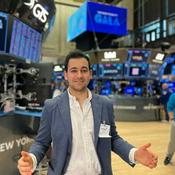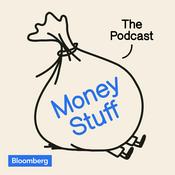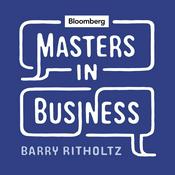1133 episodios
- One of the mega-themes of the economy is that the big keep getting bigger. You see it in technology, where the megacap software companies are outperforming their smaller peers. And you see it in finance, where the world's biggest banks keep growing their share within the industry. Across multiple fields, there are clear advantages to size and scale that keep accruing. But what does it take to get to the very top, and what are the real advantages to size and scale? PNC Financial is one of the biggest banks in the country, though not quite as big as names like JPMorgan or Bank of America. So what does it take to grow in such a mature industry? And what kind of advantages accrue to the large players? On this episode, we talk to CEO Bill Demchak in a wide ranging conversation about the state of the industry. He explains why they're still building physical bank branches, why it's not a good time to make acquisitions, and how one bank stands out from another. We also talk about the changing regulatory environment, and what the firm is seeing right now in terms of useful applications of generative AI.
Subscribe to the Odd Lots Newsletter
Join the conversation: discord.gg/oddlots
See omnystudio.com/listener for privacy information. - We talk all the time about private credit. And we increasingly talk about it from the perspective of the AI buildout, and how all of these datacenters are being financed. But why did the space get so big in the first place, and what does its history indicate for the future of the asset class? On this episode, we speak with Michael Zawadzki, the Global CIO for Blackstone Credit and Insurance. Michael’s been with the firm since 2006, and built its private credit from the ground up. He talks about what it took to succeed in the space, the advantages that accrue to large players, and why private credit has played such an important role in financing AI infrastructure.
Read more:
Private Credit Firms Push New Funds in Bid to Tap Retiree Money
BlackRock’s HPS Makes Its First Asia Investment After Merger
Only Bloomberg - Business News, Stock Markets, Finance, Breaking & World News subscribers can get the Odd Lots newsletter in their inbox each week, plus unlimited access to the site and app. Subscribe at bloomberg.com/subscriptions/oddlots
Subscribe to the Odd Lots Newsletter
Join the conversation: discord.gg/oddlots
See omnystudio.com/listener for privacy information. - Earlier this week, we saw something unusual happen in markets. The S&P 500 fell 2%, US Treasury yields rose, and the dollar simultaneously declined. This trifecta of market moves has rekindled talk of the "Sell America" trade as investors worry about the Trump administrations threats to take over Greenland. At the same time, Japanese bonds sold off after Prime Minister Sanae Takaichi called a snap election. So, how concerned should investors be about these latest developments? Is the "Sell America" trade really back? Or are we seeing a global rise in long bond yields? In this episode, we talk with Pimco CEO Emmanuel Roman about how he’s reading the moves. We also discuss Pimco's investment in data center debt, how the company is using AI internally, and why he doesn't 'get' gold.
Read more:Why Investors Are Worried About Japan’s Bond MarketHow Gold’s Safe-Haven Appeal Is Fueling Record Prices
Only http://Bloomberg.com subscribers can get the Odd Lots newsletter in their inbox each week, plus unlimited access to the site and app. Subscribe at bloomberg.com/subscriptions/oddlots
Subscribe to the Odd Lots NewsletterJoin the conversation: discord.gg/oddlots
See omnystudio.com/listener for privacy information. - In the AI industry, there's always a hot new thing. First it was ChatGPT. Then it was the image generators. There was the DeepSeek moment. In the latter half of last year, everyone was excited about how good Google's Gemini was. In January 2026, the new hot thing everyone is talking about is Claude Code. But of course, the AI models have been able to generate lines of code for a long time now. So what is it about Claude Code that has people so excited? Why is it that people are asking: "Is this AGI?" On this episode, we speak with Noah Brier, the co-founder of Alpehic, a consultancy firm that helps large organizations implement AI technology. Noah has been using the Large Language Models for longer than just about anyone, since even before ChatGPT existed. He explains to us the evolution of AI-assisted coding, what Claude Code actually is, and why it is that traditional software firms have been getting destroyed in the stock market lately.
Read more:Meta Begins Job Cuts as It Shifts From Metaverse to AI DevicesAI Coding Startup Replit Nears Funding at $9 Billion Valuation
Only http://Bloomberg.com subscribers can get the Odd Lots newsletter in their inbox each week, plus unlimited access to the site and app. Subscribe at bloomberg.com/subscriptions/oddlots
Subscribe to the Odd Lots NewsletterJoin the conversation: discord.gg/oddlots
See omnystudio.com/listener for privacy information. - One of the extraordinary elements of the civil unrest taking place in Iran is that it's almost impossible to know what's going on. There's a virtually complete news blackout, in part because of the government shutting down the internet. What this means in practice right now is that someone on the outside can't even know for sure whether the Iranian stock market has been trading lately, or whether it's been halted. And then of course there are bigger questions about the scale of the civil unrest and the government's response to it. On this episode of Lots More, we check in with recurring guest Maciej Wojtal, the founder and CIO of Amtelon Capital, one of the few international firms to have direct exposure to Iranian stocks. We talk about what he's been able to ascertain about the protests, why they're taking place, Iran's ongoing financial crisis, and why this round of civil unrest is different from before.
READ MORE: How Iran Sanctions and a Currency Crash Triggered Mass Protests
Subscribe to the Odd Lots Newsletter
Join the conversation: discord.gg/oddlots
See omnystudio.com/listener for privacy information.
Más podcasts de Economía y empresa
Podcasts a la moda de Economía y empresa
Acerca de Odd Lots
Bloomberg's Joe Weisenthal and Tracy Alloway explore the most interesting topics in finance, markets and economics. Join the conversation every Monday and Thursday.
Sitio web del podcastEscucha Odd Lots, Inversión Racional Podcast y muchos más podcasts de todo el mundo con la aplicación de radio.es

Descarga la app gratuita: radio.es
- Añadir radios y podcasts a favoritos
- Transmisión por Wi-Fi y Bluetooth
- Carplay & Android Auto compatible
- Muchas otras funciones de la app
Descarga la app gratuita: radio.es
- Añadir radios y podcasts a favoritos
- Transmisión por Wi-Fi y Bluetooth
- Carplay & Android Auto compatible
- Muchas otras funciones de la app


Odd Lots
Escanea el código,
Descarga la app,
Escucha.
Descarga la app,
Escucha.














































